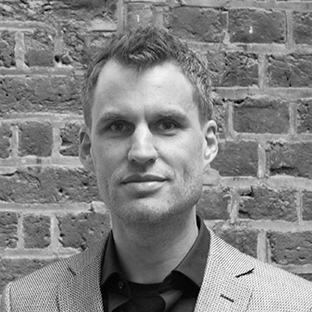How can we change the welfare system to help people solve their individual challenges?
We’ve been exploring how a basic income could change the way welfare works. We wanted to see how a basic income could be designed in way that helps create a community that supports people.
This needed us to hear people’s voices and experiences, so we headed to Fife in Scotland, an area already actively thinking about a basic income experiment. Talking to local citizens and those working within the public and voluntary sector, we heard about the challenges people face and the potential of a basic income to help people make positive changes in their lives.
Based on those conversations, we tried to imagine the impact that a basic income could have on people’s lives.
For the RSA’s previous work on economic security and modern work, we created seven 'portraits' of types of people trying to improve their lives.
Following our work in Fife for our report A Basic Income for Scotland, we wanted to see how a basic income could help three of them.
Polly, Care Worker, 33
“I may have job security, but that doesn’t mean I feel financially secure.”
As a care worker, Polly rises early to make it to her first call at 7am. She squeezes in some paperwork before heading home for a break at noon, returning for a second shift from 4pm to 10pm – well it’s supposed to be 10pm, but Polly finds that the time constraints are unrealistic and she often finishes late.
Polly is not concerned about job security because the company cannot afford to let anyone go. She is on a minimum wage and is the sole breadwinner. Her partner has applied for a disability living allowance, but is unsure if it will be granted, so they rely on her income to make a living.
Polly faces a number of challenges that a basic income may help her with. In the short term, she treats herself and her partner with a take-away, to have an evening when neither of them have to cook. She’s also happy the financial pressure on her partner has eased a bit while he waits for the decision on his disability allowance.
In the longer term, she has the confidence to find a new employer that is more rewarding and supportive. Now she’s experiencing a little financial breathing space, she’s starting to look at training courses that could help her move into a more senior and better paid role in the future.
Kathryn, Single Parent, 29
“I have no idea how I’m going to feel when I wake up. I just hope that my good days are the same as the days I’m offered work.”
Kathryn is a single parent with a young child. She works in a warehouse on a zero-hour contract, which means she never quite knows what income she’ll have from one week to the next.
She lives in a privately-rented flat in a relatively remote town. She doesn’t know many people there. The landlord is a bit of a tyrant, and Kathryn sometimes struggles to pay her rent and afford childcare. It’s tough for her to know what to prioritise when everything seems like a priority.
Kathryn has no financial assets and is financially excluded with limited access to banking. She lives under constant stress and anxiety about the future.
The uncertainty of her situation and how she will provide for her child means she’s on prescribed medication from the GP. Her day-to-day health fluctuates significantly and more often than not she’s not able to work. Yet her mental health is not seen as sufficiently poor for her to access a wider level of support from the system.
Kathryn faces a number of challenges that a basic income may help her with. In the short term, it relieves her pressure to work on the days she doesn’t feel well enough to. Her basic income means that being on a zero hours contract is now a positive for Kathryn, as she can access employment more flexibly. She also doesn’t worry about childcare as much.
In the longer term, Kathryn starts to feel the anxiety and stress ease a little and is able to reduce her medication and start to work a little more. By making small changes Kathryn sees that she’s come a long way, simply by making cumulative small changes that felt impossible to achieve before the basic income.
Martin, self-employed, 44
“I doubt there’s any help out there for someone like me, I’ve never asked for anything from the Government before. Even if look it means admitting I’m struggling, and where would I start anyway? I haven’t got the time or the headspace. I just need to try and be strong for my wife.”
Martin left his job in the public sector around three and a half years ago to start his own business as a self-employed photographer. Shortly after starting out on his own, he and his wife suffered the loss of their first baby soon after childbirth. This made him more aware of the safety net he had given up when he went self-employed, and he had to return to work straight away, which took a toll on the quality of his work given the creative nature of photography.
This was compounded by the fact he felt he had let his wife down and was not able to provide the level of care and support she needed. All of this substantially increased his stress levels and Martin was experiencing anxiety and depression.
Martin faces a number of challenges that a basic income may help him with. In the short term, it eases his immediate financial pressure, and he feels a weight lift from his shoulders. He spends more day-to-day time supporting his wife without the worry that he is not earning any income from his business.
Martin decides to see what help might be available for his family and is surprised to find a local support group which he and his wife decide to go to. They realise there are other people in the same situation as them, and this sense of solidarity provides a welcome emotional support. Through the group, they are pointed to a range of possible services which they start to look into.
In the longer term, Martin is able to access some small business advice and guidance, which helps him think about longer-term plans for his work. Martin is therefore able to access a range of support in Fife to help him make these changes.
Basic income is about giving people the power to solve their own individual challenges
One the biggest problems with the current welfare system is that it’s not good at solving the individual challenges people face.
Polly, Kathryn, and Martin show us that a basic income, being non- prescriptive, allows people to respond to their own circumstances in the way that makes the most sense to them.
It becomes less risky for people to try something different. And allows people to spend the time and energy they waste on dealing with the welfare system on making positive changes in their life.
For example, in Fife we heard from people who wanted to take a course to learn a new skill to further their career, to work more as childcare is more affordable, to volunteer more in their community, or to save more.
We see basic income as an enabler of such changes in ways that are simply not possible within the current system.
Clearly, a Basic Income is not a silver bullet that will solve all of society’s problems. But it is based on the idea of giving people the power to make practical decisions and supporting them to do so.
Universal credit and the current welfare system are not fit for purpose, and are simply not responsive to individual circumstances. Anything that tries to fix that it worth more experiments and trials.


Join the discussion
Comments
Please login to post a comment or reply
Don't have an account? Click here to register.
I worked in engineering for many years, including four years in Australia. At the age of 23 I was earning over £20000 a year for working a standard 40 hour week, with bonuses and overtime on top. At the age of 42 after being made redundant twice, firstly due to Brexit and then due to Covid, I found myself in receipt of Universal Credit. Looking back over the previous 20 years in engineering it occurred to me that the wages had stagnated at best. When I left engineering I was on a very similar wage to what I was on at 23, however the average annual inflation rate is 3.22%. That doesn't sound too bad until we realize that at that rate prices will double every 20 years. So over the 20 years the reward for my time and effort has in real world terms has halved. I am currently working part-time while undertaking a Nebosh National Diploma in Environmental Management with a view to starting an Mres next year. I would welcome a Basic Income system in the UK, especially now that I have a young child.
I think it would be helpful to highlight how UBI can help someone who is stuck in a disfunctional or abusive relationship.